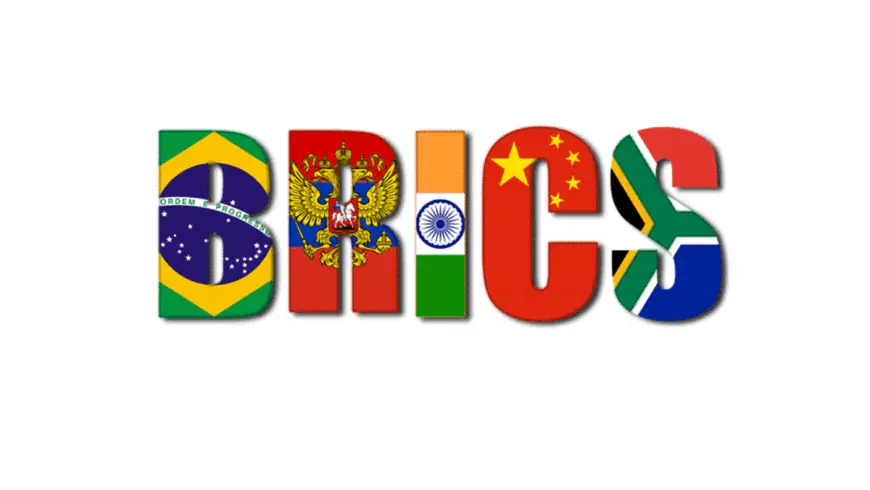BRICS News: Member States Seek Alternatives to the US Dollar, Is XRP the Next Step for Cross-Border Transactions?
The BRICS nations are vigorously working towards shifting away from the U.S. dollar, leveraging their currencies and digital assets like XRP. As these countries work towards economic independence, XRP could play a key role in facilitating cross-border transactions. The BRICS economic bloc, which comprises Brazil, Russia, India, China, and South Africa, is tirelessly working towards [...]


- The BRICS nations are vigorously working towards shifting away from the U.S. dollar, leveraging their currencies and digital assets like XRP.
- As these countries work towards economic independence, XRP could play a key role in facilitating cross-border transactions.
The BRICS economic bloc, which comprises Brazil, Russia, India, China, and South Africa, is tirelessly working towards economic independence from the U.S. dollar. These nations are increasingly trading using their local currencies, sidestepping the greenback. Speculation is rising about the role of XRP in transacting cross-border transactions among these countries.
#BRICS– are increasingly moving away from the US dollar in international trade.
While $XRP has gained attention for its potential in cross-border payments, could BRICS explore the use of XRP for their international transactions?
Source: https://t.co/kO3YB2N9Fr pic.twitter.com/g8K9QAFSrK
— Ledger Man
(@strivex_) August 14, 2024
Sameep Shastri, Vice Chairman of the BRICS Chamber of Commerce and Industry, drew attention to the issue in a recent interview with a leading news outlet. Sameep said,” I think we are going to see de-dollarization soon. We have already started our trade using rubles and rupee and yuan and rupee, our own currencies, and we do not attach much value to dollar anymore.” He went ahead stating that:
We should not be dependent on one single currency. We should be dependent on our own currency, and we should make it strong and make our economy strong, Shastri stated.
This alliance, which was founded in 2009, expanded again this year, with countries such as Egypt, Iran, the United Arab Emirates (UAE), Saudi Arabia, and Ethiopia joining the team. This move will and has bolstered their impact on economic independence.
Additionally, disputing the West’s long-held position at the top, Shastri stated, “If you just look at Russia, India, and China—we are very strong three nations among the growing economies.” This pinpoints the idea that the economic balance of power is shifting towards the Global South.
As the BRICS bloc continues to find alternatives to the U.S. dollar, cryptocurrencies like XRP could play a pivotal role in the future of cross-border transactions. An unforeseen event, though long anticipated, happened, as per a CNF report after India conducted its first-ever crude oil transaction with the UAE using local currencies, bypassing the U.S. dollar altogether. This is where it gets interesting: This transaction was integrated with the XRP Ledger System CryptoTradingFund (CTF).
Notably, investors earn rewards in CFT that they can cash back, opening doors for people to benefit from blockchain technology. XRP’s prowess in cross-border transactions falls in line with the BRICS economic framework. Focusing on the bigger picture, this integration will lead to broader cryptocurrency adoption.
As per our earlier report, XRP could be in the crosshairs of the BRICS economic arsenal. The partnership between India and the UAE goes beyond mere oil trade. The two nations are working towards creating a real-time payment connection to simplify cross-border money transfers, potentially setting the stage for XRP to become a key player in BRICS’ cross-border payment systems.
Meanwhile, at the time of writing, XRP is swapping hands for $0.5696, marking a 0.40% decline in the last 24 hours.
What's Your Reaction?









































































































